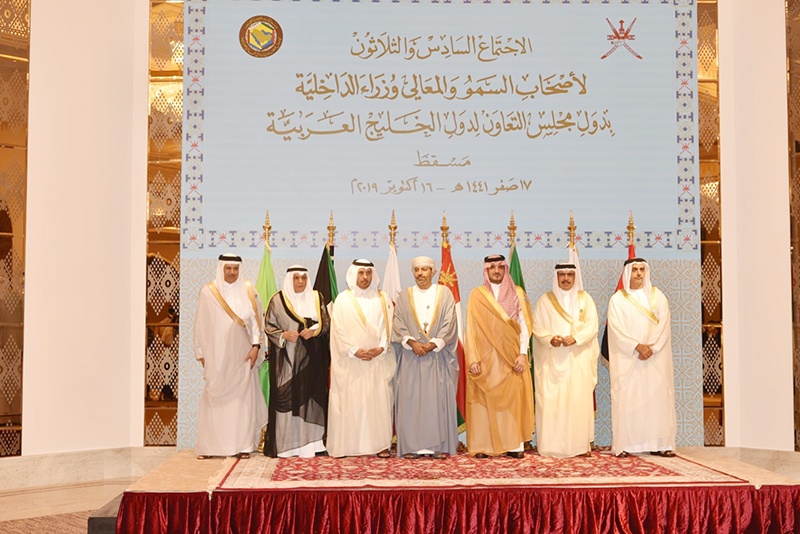Kuwait underlines quite complex regional conditions

MUSCAT: Interior ministers of Gulf Cooperation Council (GCC) countries took some decisions at the end of their 36th meeting aiming to bolster security cooperation. The resolutions seek to unify Gulf efforts to combat crimes and terrorist acts, GCC Secretary General Abdulatif Al-Zayani said in a press statement following the meeting which took place on Wednesday. He stressed that the ministers lauded strenuous and sincere efforts made by GCC security apparatuses. He also extolled the Gulf security centers like the Criminal Information Centre to Combat Drugs in Doha, the GCC Emergency Management Center in Kuwait and the Gulf police in Abu Dhabi.
The one-day meeting discussed GCC security cooperation to counter terrorism, cybercrimes, common training of security apparatuses and the Gulf security network project. The gathering focused on establishing the Gulf Academy for Security and Strategic Studies, the recommendations on meetings of border and coast guards, airport security and others. In addition, the ministers dealt with recommendations of secretaries general of GCC security training institutions, anti-drug bodies, traffic committees and others. Deputy Prime Minister and Interior Minister Sheikh Khaled Al-Jarrah Al-Sabah headed Kuwait's delegation to the meeting.
Complex conditions
In his keynote speech at the start of the meeting, Sheikh Khaled Al-Jarrah said that the session was intended to examine means of boosting security cooperation among the member states amid very complex regional circumstances. He lauded his peers from the other GCC countries for "sensing these surrounding challenges for we share a joint destiny and goals," affirming Kuwait's unwavering stand alongside Saudi Arabia in confronting regional dangers and defending its potentials and installations. These critical regional conditions "have warranted utmost vigilance," he said, noting necessity to pursue the fight against terrorism.
Narcotics are not less dangerous than terrorism for they affect the youth in the GCC countries, he said, noting linkage among drugs, funding terrorist groups and arms trafficking. Although technological progress implies some positive outcomes, advanced technology has been misused by criminal and terrorist organizations for undermining security and spreading rumors, he noted. The GCC was founded in the early 1980s to boost coordination, at various levels, among the member states; Kuwait, Oman, the UAE, Qatar, Bahrain and Saudi Arabia. - KUNA









